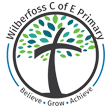Geography- The Big Picture!
Big Picture
At Wilberfoss, we will inspire curiosity and fascination in pupils through exploring the wonders of the world. They will begin to understand their place in the world and their impact upon it; within our school and local community before looking beyond. Children will be taught fieldwork skills and will be given opportunities to use them in real world contexts, as well as embedding geographical knowledge year on year. Children will develop knowledge and appreciation about diverse places and people as well deepening their understanding of key human and physical processes. They will learn about current affairs, such as climate change and how we can make a difference.
Intent
At Wilberfoss, our geography curriculum focusses on children progressing from developing knowledge of the United Kingdom and their own locality in KS1 to learning about Europe and North and South America as well as more in-depth knowledge of their locality in KS2. Topics within KS2 have been sequenced in a way that supports children’s development of knowledge and understanding of the World.
We aim to utilise our local area to support the teaching of geography, specifically geographical enquiry. York and the East Riding provides an ideal opportunity to study physical and human geographical features due to its proximity to rivers, the coast and large and small human settlements.
Implementation
Foundational geographical knowledge is primarily taught through the ‘understanding the world’ area of learning (EYFS Progression document). The geography curriculum at Wilberfoss Primary School for Years 1-6 uses the National Curriculum as a basis for its content and framework. The objectives have been added to a coverage grid to ensure all aspects of the curriculum are mapped out and progression is planned for. Schemes of work such as Oddizzi are used to support and develop teacher confidence in planning and delivering high quality lessons.
To provide key information, core vocabulary and the big ideas that all children are expected to master, Knowledge Organisers are created to take home prior to the topic beginning. Key vocabulary (from the knowledge Organiser) is displayed in the classroom. These are then referred to throughout the topic. As well as this, all classrooms have large World maps which are labelled with key information from the children’s current and prior learning. We use knowledge organisers to help our children remember the powerful knowledge and key vocabulary identified in our curriculum and are committed to ensuring all children master it. Retrieval practice is key to achieving this goal and is incorporated into our day to-day teaching.
Through the use of formative assessment each lesson, opportunities are provided for information to be recalled by the children. Opportunities for information recall are included in geography lessons to ensure that this knowledge is transferred into the long term memory. Activities will provide children with an opportunity to discuss and explain new ideas and concepts and/or recall prior learning. These activities may be in the form of labelling maps and diagrams and explaining true or false statements, to name but a few. It is fundamental that misconceptions are addressed quickly so children will also complete low threat/high challenge quizzes independently to support this formative assessment. This is recorded regularly on the whole class feedback sheets after lessons.
Impact
The children in EYFS are constantly assessed and misconceptions are addressed immediately or through 'Feeding Forward' where these can be addressed through provision enhancements or during adult directed activities. A GSA (gap and strength analysis) is also completed each half term to identify any areas which need to be addressed. Specific recall activities such as quizzes, are used in KS1 and KS2 to enable teachers and children to monitor the depth of understanding of core substantive and disciplinary skills. This formative assessment is used to inform future planning and is recorded on whole class feedback sheets, which are passed on to the following teacher.
Pupils’ work, in written and photographic forms, as well as short assessment tasks at the end of each unit are used to demonstrate children’s learning . These help to inform teacher assessment, both formative and summative, and are used by subject leaders as part of the monitoring process. Children have opportunities to ‘work like a geographer’ by using geographical vocabulary in their speech and writing; looking at and evaluating sources of evidence; and constructing arguments.
The class teacher will assess each child’s attainment and enter this onto Insight. Teachers will monitor whether the child is on track to be the expected standard by the end of the year. The subject leader talks to pupils about their learning as part of the monitoring process. Children’s books and knowledge organisers are used to guide discussion and provide the subject leader with the information required to measure how much of the knowledge and core vocabulary has been remembered and understood.
Curriculum Progression Map for Geography
geography coverage grid 2022.pdf
 Wilberfoss C of E Primary School
Wilberfoss C of E Primary School